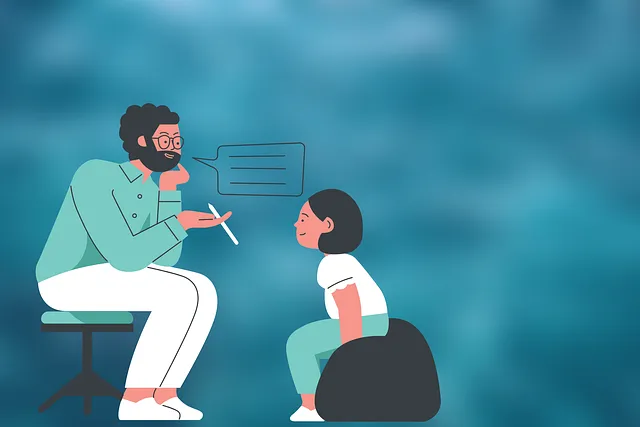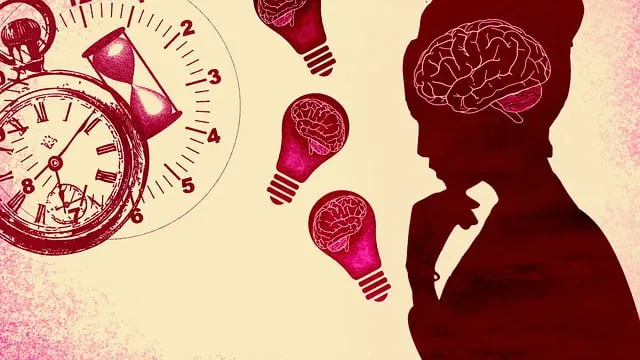Kaiser's inpatient mental health services in Northglenn focus on cultivating emotional intelligence (EQ), empowering individuals to manage emotions, build resilience and improve relationships. Through structured workshops, mindfulness practices and empathy development, patients gain self-awareness, stress management skills and better decision-making abilities for both personal and professional life. These services play a critical role in supporting trauma recovery and navigating the fast-paced demands of today's world, aligning with burnout prevention strategies for healthcare providers.
Emotional intelligence (EI) is a powerful tool for personal and professional growth, offering a competitive edge in today’s diverse and dynamic world. This article explores the multifaceted aspects of building EI, including understanding its potential and identifying emotions effectively. We delve into empathy as a cornerstone of healthy relationships and self-awareness as a catalyst for personal transformation. Discover how these strategies can enhance your well-being, much like Kaiser’s inpatient mental health services support those in Northglenn and beyond.
- Understanding Emotional Intelligence: Unlocking its Potential
- Identifying and Managing Emotions Effectively
- Empathy: The Cornerstone of Healthy Relationships
- Cultivating Self-Awareness for Personal Growth
Understanding Emotional Intelligence: Unlocking its Potential

Emotional intelligence (EI) is a powerful tool for personal growth and navigating life’s challenges. It involves recognizing, understanding, and managing one’s own emotions, as well as empathizing with and responding appropriately to others’ feelings. At Kaiser in Northglenn, inpatient mental health services play a crucial role in helping individuals unlock the potential of emotional intelligence. Through compassionate cultivation practices, patients can learn strategies to enhance their mental wellness, fostering better relationships and improved decision-making abilities.
By focusing on EI development, individuals can improve their self-awareness, gain deeper insights into their emotions, and develop stronger interpersonal connections. This, in turn, leads to enhanced resilience, better stress management, and increased satisfaction in both personal and professional life. At Kaiser, mental health professionals guide patients through various techniques and exercises tailored to cultivate compassion and emotional intelligence, ultimately enabling them to thrive in a complex world.
Identifying and Managing Emotions Effectively

Emotional intelligence involves recognizing, understanding, and managing our own emotions as well as those of others. The first step in this process is identifying and acknowledging your emotions—a skill that can be cultivated through mindfulness practices and self-reflection. Once you’re aware of your feelings, it becomes easier to manage them constructively. This might involve strategies like deep breathing for anxiety relief or setting boundaries to protect against overwhelming stress.
For those in Northglenn seeking support, Kaiser offers inpatient mental health services that can be invaluable in mastering these skills. Their workshops and programs, focused on stress management and anxiety reduction, provide a structured environment to learn and practice emotional intelligence techniques. By participating in such initiatives, individuals can gain the tools needed to navigate life’s challenges with greater resilience and emotional awareness.
Empathy: The Cornerstone of Healthy Relationships

In building emotional intelligence, empathy stands as the cornerstone for fostering healthy relationships, both personally and professionally. The ability to understand and share another person’s feelings creates a powerful bond that transcends mere communication. Northglenn residents seeking support for trauma or mental health issues can find resources at Kaiser, which offers inpatient mental health services. Empathy enables individuals to connect on a deeper level, fostering an environment of trust and open dialogue. This skill is crucial in resolving conflicts, building strong teams, and enhancing overall well-being.
Developing empathy involves actively listening, observing non-verbal cues, and putting oneself in someone else’s shoes. By cultivating this trait, people can better navigate the complexities of interpersonal interactions, offering Trauma Support Services that promote healing and growth. Moreover, empathy serves as a foundational element for implementing effective Stress Reduction Methods, which are essential components of emotional intelligence development.
Cultivating Self-Awareness for Personal Growth

In today’s fast-paced world, emotional intelligence is a valuable asset for personal and professional growth, especially for healthcare providers in Northglenn who frequently encounter intense situations at Kaiser’s inpatient mental health facilities. Cultivaring self-awareness is a fundamental step towards achieving this. It involves recognizing and understanding one’s emotions, strengths, weaknesses, and how these factors influence interactions with others. By developing self-awareness, individuals can better manage their responses to stress, which is crucial in preventing burnout, a common issue among healthcare workers.
Mindfulness meditation has emerged as an effective tool for enhancing self-awareness and mental health awareness. It encourages practitioners to focus on the present moment, observe thoughts and emotions without judgment, and develop a deeper connection with their inner selves. This practice aligns well with Burnout Prevention Strategies for Healthcare Providers, emphasizing the importance of self-care and maintaining emotional balance in demanding professions. Regular mindfulness meditation can foster resilience, improve decision-making skills, and contribute to overall well-being, all essential aspects of personal growth.
Emotional intelligence, a powerful tool for personal and professional growth, can be cultivated through understanding and managing emotions effectively. As discussed in this article, sections like ‘Identifying and Managing Emotions’ and ‘Cultivating Self-Awareness’ are pivotal steps in enhancing emotional intelligence. Northglenn’s Kaiser facility offers valuable resources for mental health support, emphasizing the importance of seeking help when needed. By fostering empathy and self-awareness, individuals can build healthier relationships and navigate life’s challenges more adeptly, ultimately leading to improved well-being and success.






